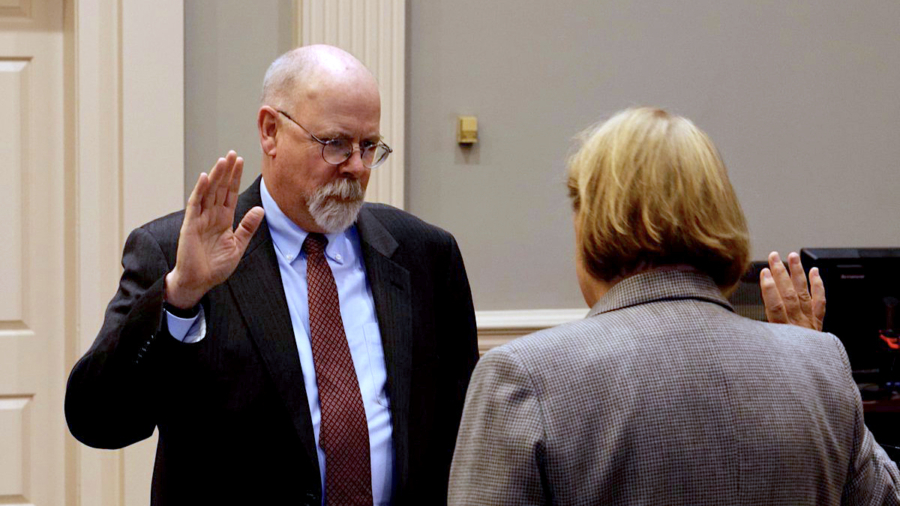The FBI attorney who altered an email as part of the process to obtain a secret court warrant to spy on a former Trump campaign advisor admitted to one count of making a false statement on Aug. 19.
Kevin Clinesmith made the plea as part of a deal with the prosecutors, who agreed to propose a sentencing range of zero to six months. Judge James Boasberg set the sentencing hearing for Dec. 10.
At the opening of the hearing, Boasberg noted that he is the head judge of the Foreign Intelligence Surveillance Court (FISC) which signed off on the warrant application cited in the charge against Clinesmith. The judge said he did not see any issues with the overlap, but offered the parties to call for his recusal because the FISC could be viewed as a victim. The government and Clinesmith declined the offer.
Clinesmith’s guilty plea is the first secured as part of an investigation by special attorney John Durham, who is investigating whether the FBI’s investigation of the Trump campaign was conducted lawfully and free of improper motive. President Donald Trump has long claimed that the Obama administration weaponized government surveillance against his campaign.
As part of the plea agreement, Durham’s team agreed not to prosecute Clinesmith for any of the conduct described in the 10-page statement of offense, which was not public at the time of the hearing. The prosecutors also agreed not to modify the conditions of Clinesmith’s release.
Although the government proposed a sentencing range of up to six months, Boasberg may still sentence Clinesmith above the proposed range depending on the review of the case.
Before taking Clinesmith’s plea, Boasberg asked if Clinesmith altered the email in question knowing that the statement he added was not true. Clinesmith said that he thought at the time that the statement was true, but admitted to forging the email.
Clinesmith altered the email on June 19, 2017, while working as the primary FBI attorney assigned to the Crossfire Hurricane investigation, which Mueller inherited a month earlier.
According to the court documents, Clinesmith inserted the words “and not a source” into an email from a CIA liaison that described the relationship between Trump campaign foreign policy advisor Carter Page and the CIA. As the primary FBI attorney on the case, Clinesmith was asked to find out if Page was a source for the agency before the FBI applied for the fourth and final warrant to continue surveilling Page.
As a result, an FBI special agent relied on the altered email to submit a spy warrant application to the FISC which described Page as a Russian asset without disclosing that Page was an approved operational contact for the CIA who reported on his contacts with Russian intelligence officers.
From The Epoch Times

